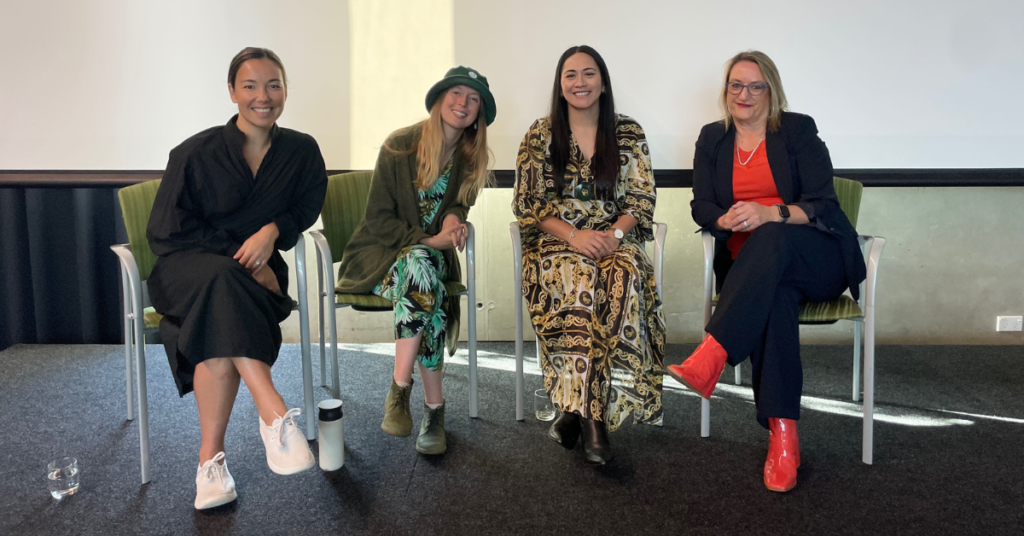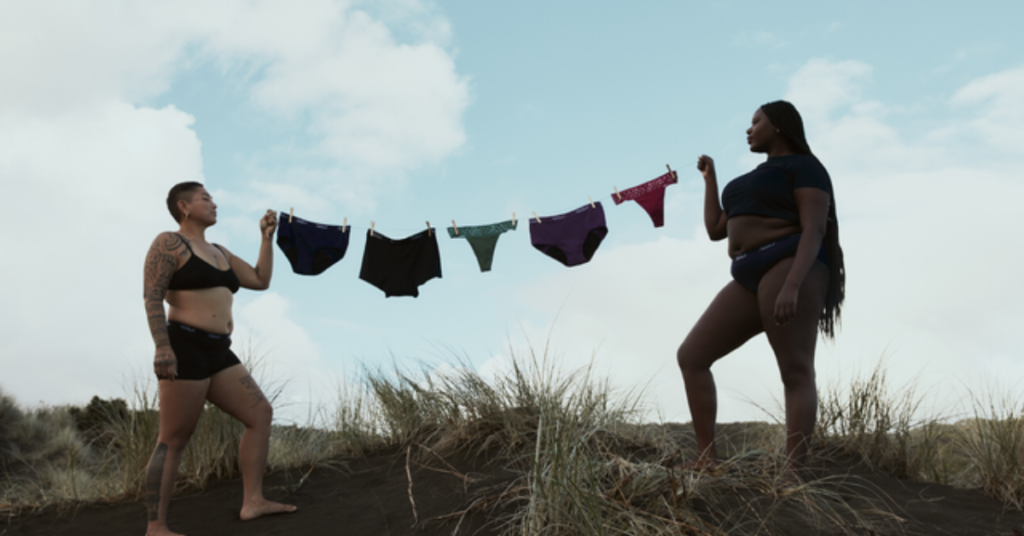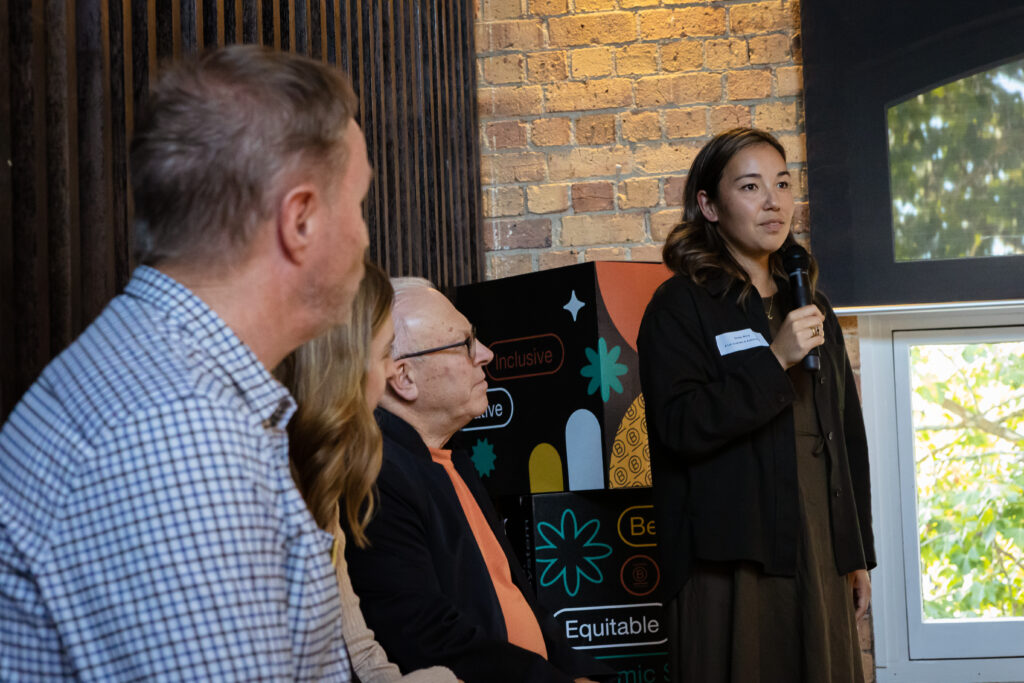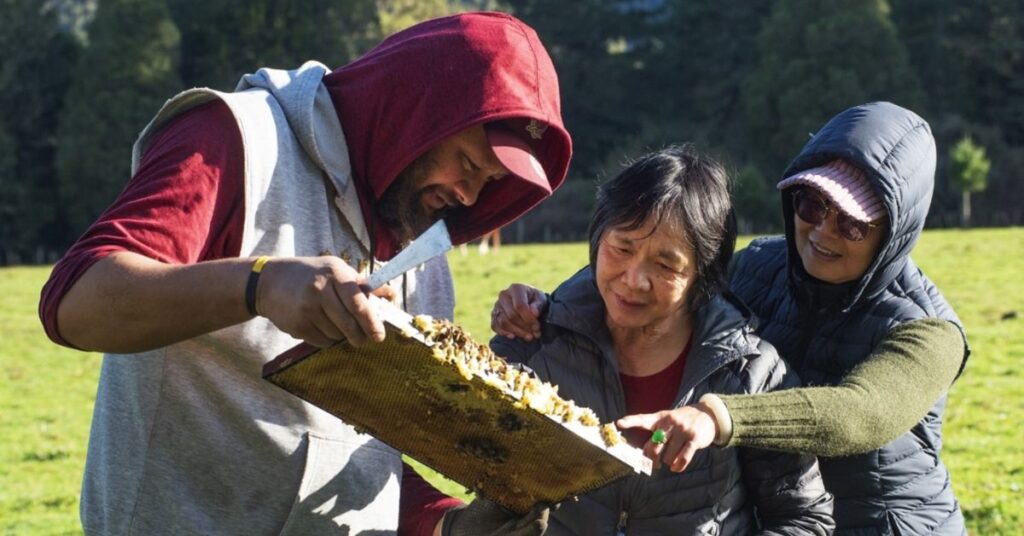In the B Corp movement, we talk a lot about interdependence. In fact, when businesses certify, they are required to sign the B Corp Declaration of Interdependence, which commits them to being responsible for future generations and conducting business as if people and place matter.
But these concepts aren’t new; they’re centuries old. Look across the world at Indigenous cultures and they all share a common belief: the decisions we make today must be made with future generations in mind.
So, while the B Corp movement is gaining enormous momentum across the globe, it’s important to recognise the alignment of values between the B Corp movement and te ao Māori, or the Māori worldview, right here in Aotearoa New Zealand.
These concepts also aren’t exclusive to these groups – they’re for everyone. You don’t have to be a Certified B Corporation to act like a B Corp, and you don’t have to be iwi-owned to act like a Māori business.
How might these two rōpū (groups) work together to achieve our shared goals of inclusion and regeneration? What are the tikanga (practices) we share and how can they enable more impactful business operations? What are the commonalities between us, upon which we can build the trust required to work together? It’s time to do the mahi (work).

Shared goals, shared prosperity
In our conversations with iwi, we have been inspired by the spirit of generosity with which they share their indigenous knowledge. This approach of ‘open source’ intelligence for the benefit of all is also shared by the B Corp movement.
With Aotearoa now home to over 100 Certified B Corporations — a number that has grown significantly in recent times — there is increasing momentum for purpose-driven business, and a growing impetus to share wisdom across cultures. Here are three ways that te ao Māori and the B Corp movement already align, and can continue to deepen alignment, for our shared value, prosperity and flourishing.

1. Manaakitanga and stakeholder governance
At the core of the B Corp movement is the concept of stakeholder governance. Our founders believed that shareholder primacy is the ‘source code error’ of capitalism and that, to build an inclusive, regenerative and equitable economy, businesses must fundamentally transform the way they think about success to be about more than just profit, but about positive benefit for all people and the planet.
The concept of manaakitanga holds many of the same principles. Every person and thing holds mana (its own supernatural force, commanding respect) and aki means to encourage, to incite or exhort. So, the practice of manaakitanga is about uplifting and supporting the mana of others.
To do this we must firstly be aware of our impact, both positive and negative, on those around us. And we must consider those impacts when making decisions — with the goal of having a positive impact on them, to uplift their mana.

The concept of uplifting and supporting others was coined by Hēnare (2011, 2014, 2016) and beautifully explained by Kiri Dell et al. as the ‘mana economy’. Compared to a so-called western economy where wealth and prosperity is defined by one’s ability to accumulate resources for yourself, the mana economy defines wealth by one’s ability to uplift others. What do you think our global economy would look like under these conditions?
2. Kaitiakitanga and intergenerational thinking
The concept of kaitiakitanga (to be a guardian) is core to Māori business and governance. This view holds that we are responsible for making decisions that benefit future generations, sometimes looking as far ahead as 500 years.
Being a guardian of te taiao (the environment), its taonga (treasures) and he tangata (the people) in our communities is central to being a kaitiaki or guardian.
Similarly, B Lab encourages businesses to think about its various stakeholders — customers, employees, suppliers, communities, and investors — through the lens of purpose and stakeholder governance. It means decisions are made not only to deliver returns for shareholders, but also to create positive outcomes for people, communities, and the planet through a purpose statement and stakeholder clause in the company’s constitution.
This is a clear signal of intent to deliver an overall positive impact on people and the environment for generations to come. And, in many ways, it mirrors the te ao Māori principle of kaitiakitanga, which represents a holistic approach to understanding the total system of interconnectedness and interrelationship between all living and nonliving things.

3. Kotahitanga and interdependence
Another core value we share is that of kotahitanga — working together as one. In te Reo Māori, tahi = one, and kotahi = together. It means that we are stronger when we work together, and that strength comes from working collectively with others – from whānau (families) to hapū and iwi (tribes or clans).
In the B Corp movement, this concept is reinforced by our declaration of interdependence; making it clear that we are all dependent on one another and responsible for future generations, whether they’re our direct descendants or not.
As a movement, we also recognise that systems change requires working together as a community to shift behaviours and beliefs about the role of business in society. We must go beyond our own business and work with others (sometimes even ‘competitors’), to reimagine and reinvent the structures that will enable a more inclusive, equitable and regenerative economy for future generations.
Not even the community of 7,000+ B Corps globally can do this alone, which is why partnership and alignment with other values-driven movements and rōpū (groups) is so important.

Image: AWWA
A relationship of reciprocity
If we establish an alignment of values, what does it actually mean for Māori communities and the Māori or mana economy in Aotearoa? Because if Māori organisations are already approaching business with a te ao Māori view, are they not already behaving ‘like a B Corp’?
To answer this, perhaps we can draw on another concept, that of ako, which means both to teach and to learn. In this way, we can recognise that this journey is always a reciprocal and mutual one, where both parties can give and receive value in exchange.
At B Lab AANZ, we recognise the enormous value that te ao Māori has to bring to the B Corp movement. By continuing to deepen our knowledge and understanding of Māori approaches to business, we can further enrich our certification standards and accelerate our systems change work.
But we must recognise, too, that we are on a journey to becoming a stronger Te Tiriti partner in Aotearoa New Zealand and the unique history of (de)colonisation on these lands. The truth is, our team is largely Australian-based. And while they are deeply supportive of this process, we must ensure that we are well-equipped with the historical knowledge and whakaaro (ideas) to live the values of Te Tiriti in our work.
We are hugely grateful for the support we’ve received so far from Te Aroha Grace of Ngāti Whātua Ōrākei, Temuera Hall, founder of Tahito and member of our regional standards board, Dr Jim Mather who teaches an exceptional Māori governance course at the Institute of Directors, and our very own Jo Kelly who sits on the B Lab AANZ board. The knowledge they have imparted, and continue to impart, is invaluable.

In return, we hope that our certification framework encourages the kinds of business practices that support the Māori economy to thrive, and that we can provide a platform for Māori-owned and led businesses to shine in the B Corp movement, both here in Aotearoa and globally.
After certifying our first ahuwhenua (Māori land-based trust) B Corp in Aotearoa (Manawa Honey) in 2021, we have since welcomed another five Māori-owned businesses into the movement, and hope to see many more over the coming years.
To that end, we are proud to have recently introduced equity pricing for B Corp Certification, which is available to all Māori-owned businesses. This change has the dual aim of reducing the barriers to joining the B Corp movement, and recognising the important role Māori-owned businesses (and First Nations-owned business in Australia) play in building a more inclusive, regenerative economy.

Image: Manawa Honey
A whakatauki for the journey
Mā te kimi ka kite, Mā te kite ka mōhio, Mā te mōhio ka mārama.
Seek and discover. Discover and know. Know and become enlightened.
On the path to better business, it’s true that a rising tide lifts all boats, or as Māori might say: “Nāu te rourou, nāku te rourou, ka ora ai te iwi.”
With your food basket and my food basket, the people will thrive (together we will flourish).

